When it comes to games of fetch, there’s a pretty fair divide between the dogs that love it and the ones that when you attempt to throw a ball for them, will give you that look. You know the one we mean – the ‘do you expect me to go and get that back for you now?’ look. However, if those Poodle retriever genes win out in your Doodle, you’ll likely find yourself throwing the ball for your pet to the point your arm grows numb.
In most cases, there’s really no harm in that at all (although your poor arm muscles might very well disagree). Games such as fetch provide you and your hound with a great way to bond with one another. Beyond that, if you have a nice ample space at home for it, fetch can be great for helping your four-legged friend burn off some of that excess energy that many Doodles seem to have in spades between your daily trips to the park.
Yet, sometimes, your pup’s preoccupation with their toys, especially those they can chase, can get a little too extreme. This is where the trouble starts. Is your dog obsessed with the ball? Read further.
Table of Contents
- How And Why Ball Obsession Begins
- Risks of Ball Obsession in Dogs
- Signs That Your Dog Is Obsessed With Ball
- Steps To Overcome This Problem Behavior
- Dog Obsessed With Ball: Frequently Asked Questions
- Dog Obsessed With Ball: Final Thoughts
How And Why Ball Obsession Begins
Getting excited about playtime (and most other things in their life) is the doggy way, and it’s one of the reasons we love them so much. After all, who isn’t positively affected by a toothy canine grin and a happily wagging tail? However, there is a fine line between enthusiasm and obsession, especially when an action is suitably reinforced with a positive outcome. When it comes to fetch, your pup is rewarded both with your attention and also by the endorphins released by the thrill of the chase – a heady mix!
Most dogs have the urge to chase – this is a natural response passed onto them by their hunting-for-survival ancestors. However, in specific breeds, the instinct has been far further honed. These are the ones with the higher prey drives, the ones that seem to thoroughly enjoy chasing smaller animals, and the ones more likely to develop a fixation on balls and other fetch toys. Anyone who has ever attempted to break their dog of the habit knows it’s no easy behavior to overcome for all these reasons and more besides.
The kind of Doodle you have will play a strong part in whether you are likely to find yourself dealing with a fetch obsession or not. That retriever Poodle gene is there, for sure, but if you add a further one into the mix (say from the Golden Retriever or the Labrador Retriever), you’re dramatically upping the chances. Spaniels, too, are more susceptible to having the kind of prey drive that makes them want to fetch non-stop. Smaller companion dogs, with their more home-body and less work-focused nature, are less likely to have issues.
Risks of Ball Obsession in Dogs
Now, at this point, you might be reading and wondering where’s the harm. Sure, having a ball-obsessed dog might be a pain for your throwing arm, but otherwise, how bad could it be? Well, let’s take a look:
Over-Exertion
Dogs are typically pretty good at knowing when to rest. However, when in the grips of ball obsession, they will keep running to fetch their ball well beyond the point of exhaustion. In fact, you’ll have to be the one to call it a day, not because you are tired (though you likely will be), but because you can see your dog has had a bit more than they can take.
Tunnel Vision
Dogs with this kind of fixed focus lose all the risk awareness that they might previously have had. For instance, if your hound were to drop their ball and it was to roll across the road, they would likely unthinkingly chase it down until it was once again in their possession without stopping to check for dangers such as oncoming traffic first.
Stress And Anxiety
Dogs suffering from this problem will demonstrate that kind of stress responses only really otherwise seen in those with separation anxiety. They will resort to behaviors such as panting, drooling, and either loud or destructive boredom behaviors (barking, chewing, biting, digging) each and every time their toys are taken away from them.
Signs That Your Dog Is Obsessed With Ball
As we’ve touched on above, dogs can get pretty excited about toys, but there are a few sure-fire ways to tell the difference between a ball-nut pup and a ball-obsessed one:
They Pay Attention Only To The Toy And Not To Anything Else
As with the fixed focus, you’ll notice that in the presence of the object of their obsession, your dog will be in this kind of trance-like state – tense body, glazed expression, focus on the ball, and only on the ball. This is to the exclusion of everyone and everything else and includes the completely ignoring other dogs down at the park in favor of playing fetch.
You’re Unable To Otherwise Capture Your Dog’s Interest
One of the clearest indicators that you’re dealing with a compulsive behavior rather than the simple excitement of the game is that your dog cannot be called out of the behavior. If you can distract your pup away with fussing, treats, or other toys, then they’re likely doing okay. If not, you’ve probably got a ball-obsessed canine on your hands.
They Start To Guard The Ball And/Or Other Toys
An otherwise complete love bug of a dog can turn into a seemingly aggressive nightmare when they become overly possessive of their toys. They will guard their fetch toys with the kind of toothy enthusiasm you don’t see them have with anything else, barking, growling, and snapping at any other dogs, and even any people, that come near.
Steps To Overcome This Problem Behavior
- Limit Your Dog’s Access To Their Ball
The first you will need to do is disengage your pup from their ball by removing it when you are not playing together with it. Keep it somewhere out of the way because, as the old adage goes, “out of sight – out of mind.” Then make it so that you only play fetch with your dog outside so they stop trying to find their ball to play with when indoors. Be prepared for a few ‘extinction bursts’ (over-the-top attempts to try and get access) as your dog adjusts to life without their favorite toy.
- Set Up A Play Time Routine
Dogs like knowing what to expect from their day. That’s why it’s good to feed and walk them around at the same time. The same should be true for games and especially for fetch. Actually, likely one of the reasons dogs get into an unhealthy fetch pattern is down to this. They simply get used to chasing and bringing back the ball – it becomes their raison d’être, andthis is what leads to them becoming overly dependent on it.
Once you have established the boundaries, make sure you stick to them. Don’t give in to your dog if they keep trying to engage you with the ball outside this time. If you do, you’ll send them the message that persistence pays off when they want something. You will be adding to their ball dependence. You’ll also be making your life that much more complicated if you want to try and keep to any kind of routine in the future.
- Bring New Toys Into Your Games
Exploring other ways to play and other objects to play with can be great for widening your pup’s perspective on fun ways to exercise. It could also be the case that this is on you – especially if you’ve always turned to fetch as an easy way to exercise your Dood and keep them happy. There are plenty of other ways to bond with your pet that they will love.
Start by introducing new toys – ones that vary from their current ones in terms of size, color, texture, and function. Your dog will have to learn new ways to play with these aside from blindly fetching them all the time. Then find ways to encourage your hound to make use of their other instincts. Nose games where you get them to sniff out hidden treats are a good beginning with this.
- Work On Their Training
Another potential reason dogs can become overly fixated on fetch is that they are super smart and need a task to focus on. This is especially common in hard-working herding dogs like Border Collies and German Shepherds. Stepping up their training not only puts new commands at your disposal but it helps keep your pet mentally stimulated.
One of the commands you might enforce through extra training is something to let your dog know when their daily fetch playtime is done. Linking it to something like “game over” or “all done” will give them a clear understanding that it’s time for them to focus on something else. They might be reluctant – especially at first – but they will learn to obey.
- Take Your Dog Out (Without Their Ball)
Newbie owners can often be a little unsure of how to tackle their pup’s exercise needs. It doesn’t help that there are mixed messages about how often and how far you should be walking your dog on a daily basis. The simple truth is (once passed the puppy stage) if your pal is happy to walk miles and miles with you – then why not?
Distracting your hound with alternative outdoor time is another great way to take their mind off having their ball – consider time with other dogs, swimming and hiking. Plus, by ramping these up a little, you can be sure that they are still getting sufficient exercise now that they are no longer chasing their toys backward and forwards around the yard.
Dog Obsessed With Ball: Frequently Asked Questions
Fetch appeals to a lot of dogs on many levels. It triggers their instinctual hunting behavior by encouraging them to chase down something seen as similar to prey. It is often reinforced by their owner through attention. Plus, running provides a natural endorphin boost leaving your pet feeling happy and energized – it’s a self-rewarding behavior.
Dogs who are obsessed either with a ball or with the games associated with it can be pretty easy to spot. They are usually always found with a ball or two stuffed in their mouths, will happily play for hours and hours without stopping, and, more tellingly, they cannot be distracted away from doing it, even with super high-reward other treats.
If your dog enjoys playing fetch, then it can be fine to indulge them on a reasonably regular basis. Just be sure to keep things consistent and take their ball away when you’re done. However, it’s always worth introducing your dog to other kinds of games and activities you can play together, so they can learn different ways of having fun.
There are a few ways you can address obsessive behavior when you think it might have gotten out of hand. For instance, if your dog has started to act in an aggressive manner towards anyone who comes near their toys. The first step is to limit their access to these toys and try and encourage them to spend time away from them doing other things.
Fetch is one of the best games for most dogs as it encourages them to use various hunting and retrieving skills that they have honed (and that have been honed) across the doggy generations. They have to understand where the ball is headed and how fast they need to go to run it down, for example. That’s why many intelligent pups love it so much.
Dog Obsessed With Ball: Final Thoughts
Games of fetch can be great for anyone who enjoys leisure time with their dog (and we’re sure that includes everyone reading this article). Not only is it a ton of fun for your Dood, but it’s also good exercise, meaning you’re not spending hours and hours out walking them. However, things can start to go downhill when your dog becomes fixated on this particular activity (and its associated toys) to the exclusion of everything else. If this is a problem you are currently facing, we hope the tips provided here can help you get back to just having fun with your favorite four-legged friend.
Learn How to Care for Your Doodle Puppy!
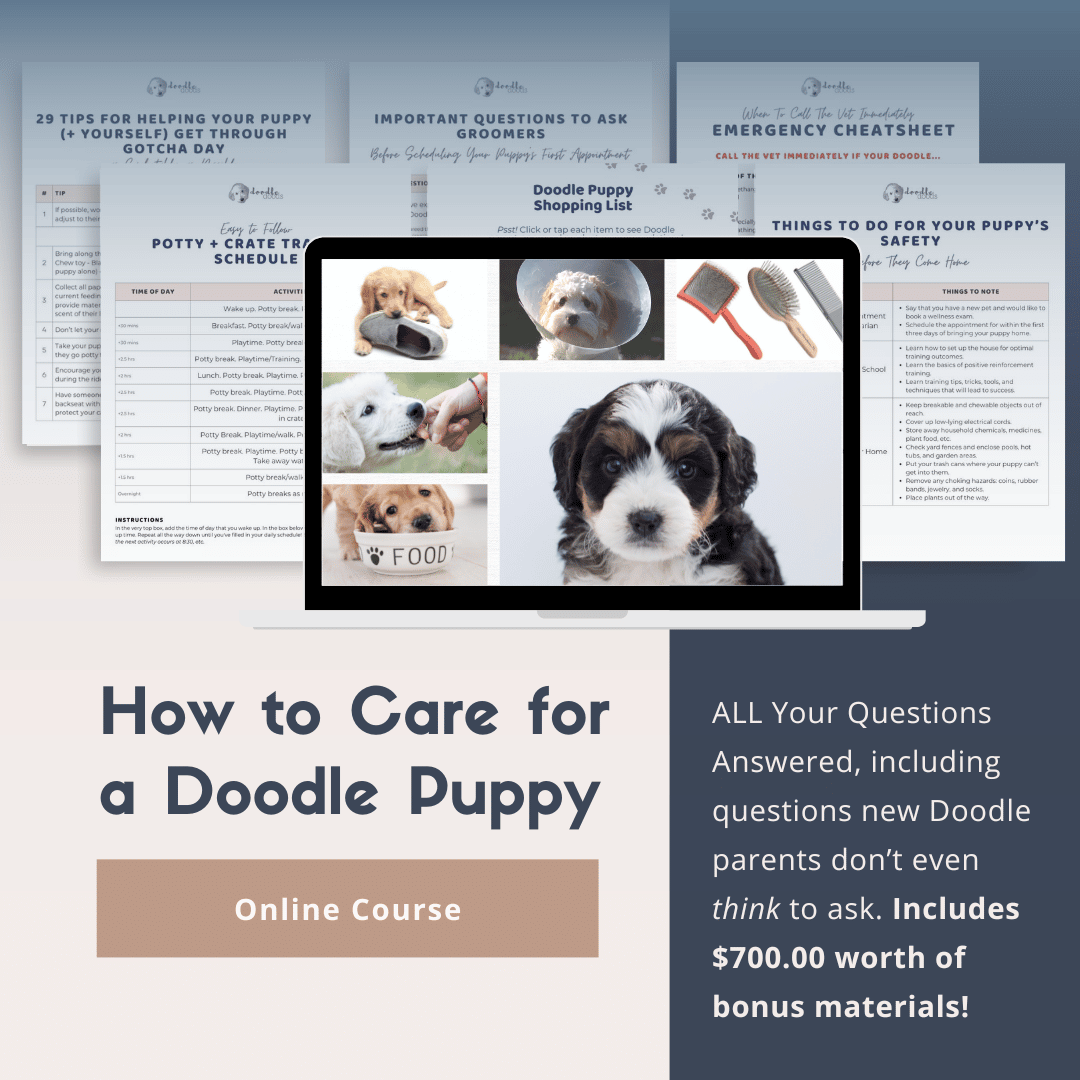
Perfect for first-time Doodle parents, get ALL your questions answered, including questions new Doodle parents don’t even think to ask.
Plus, get $700 worth of Bonus Materials for FREE, including:- Doodle Parenthood Community and Support Group ($190 value)
- Doodle Puppy Growth Tracker ($20 value)
- EMERGENCY Cheatsheet: When To Call The Vet Immediately ($50 value)
- HELP! Button ($145 value)
- And SO MUCH MORE!

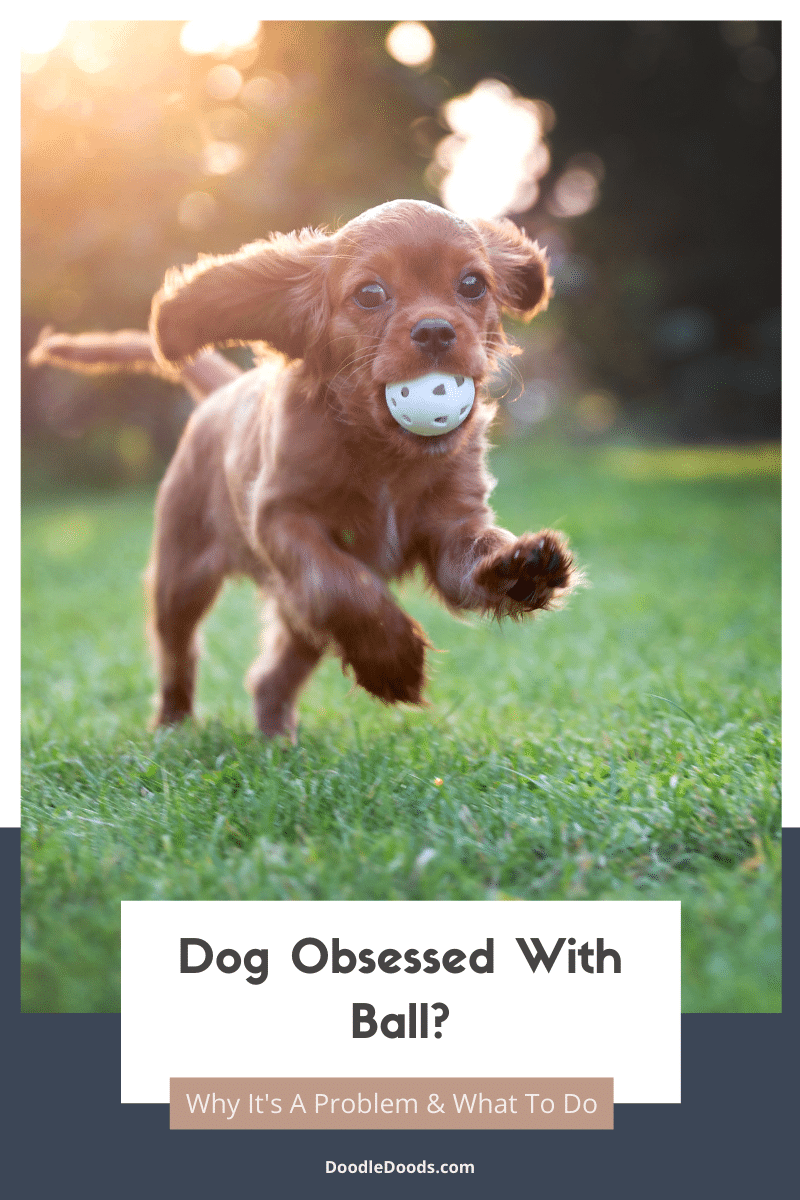

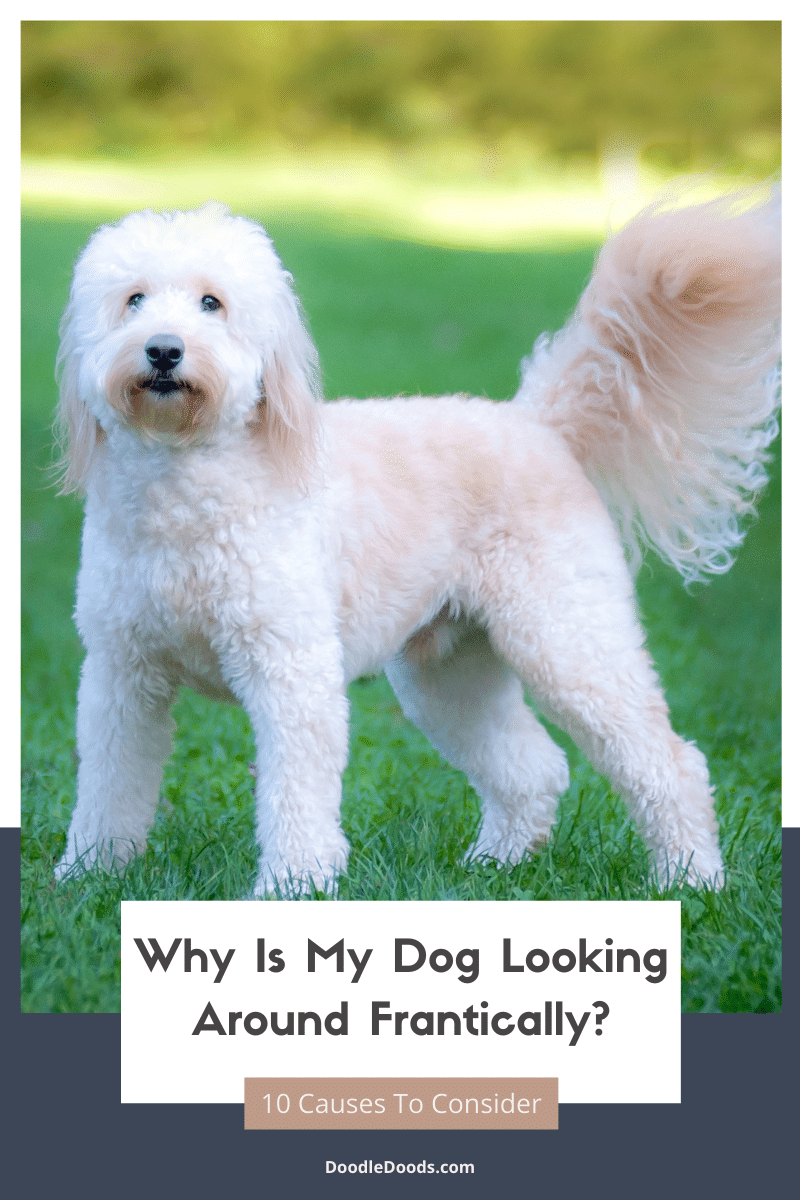
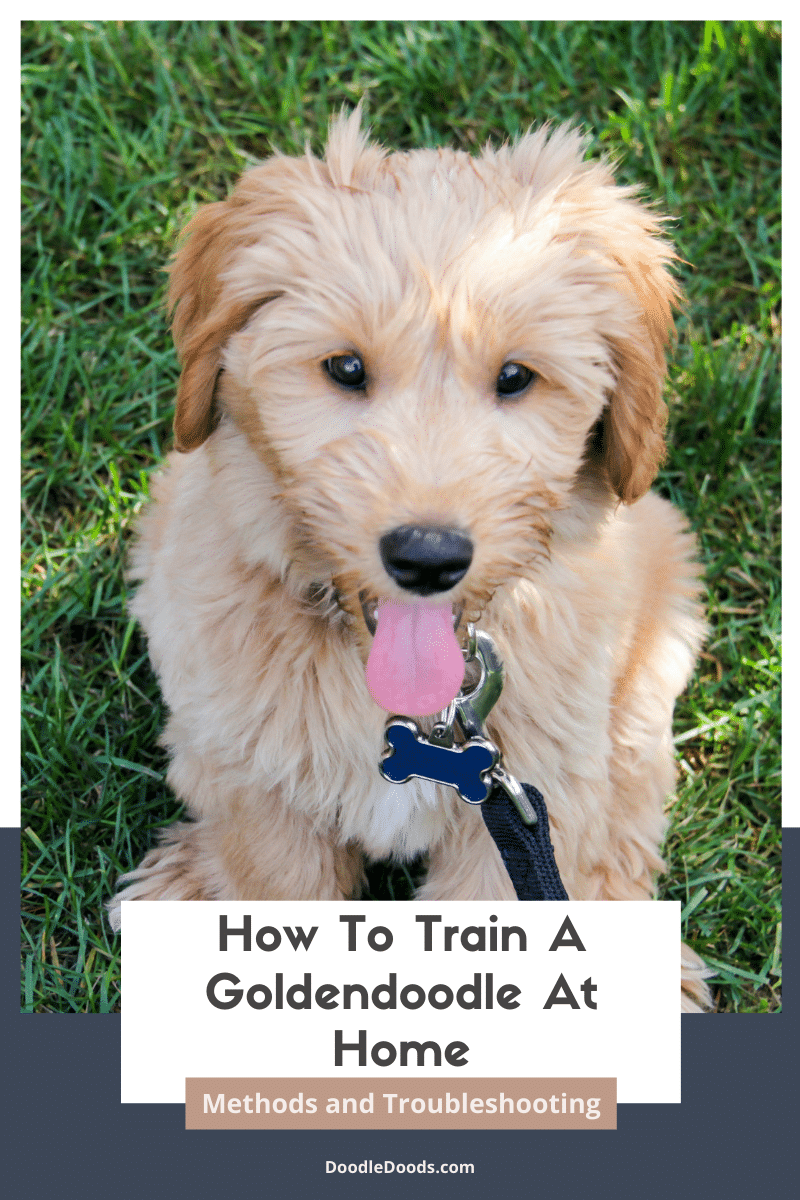
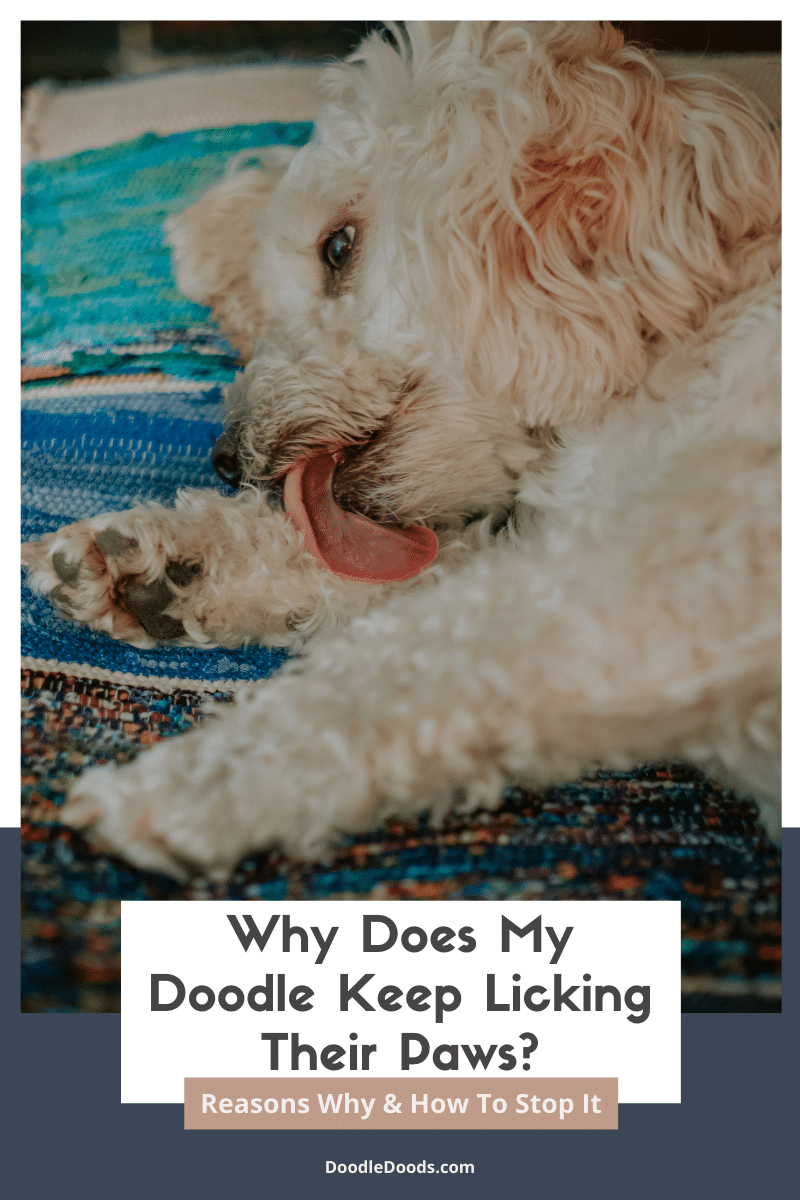
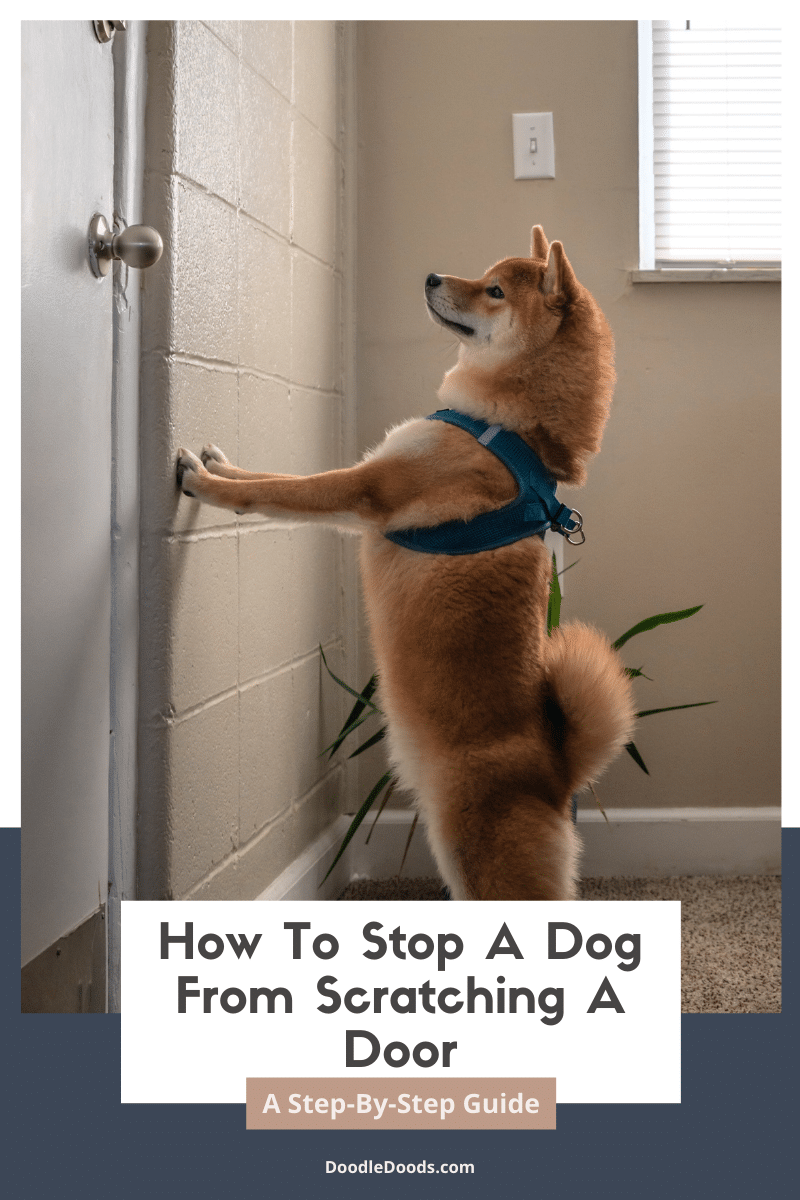
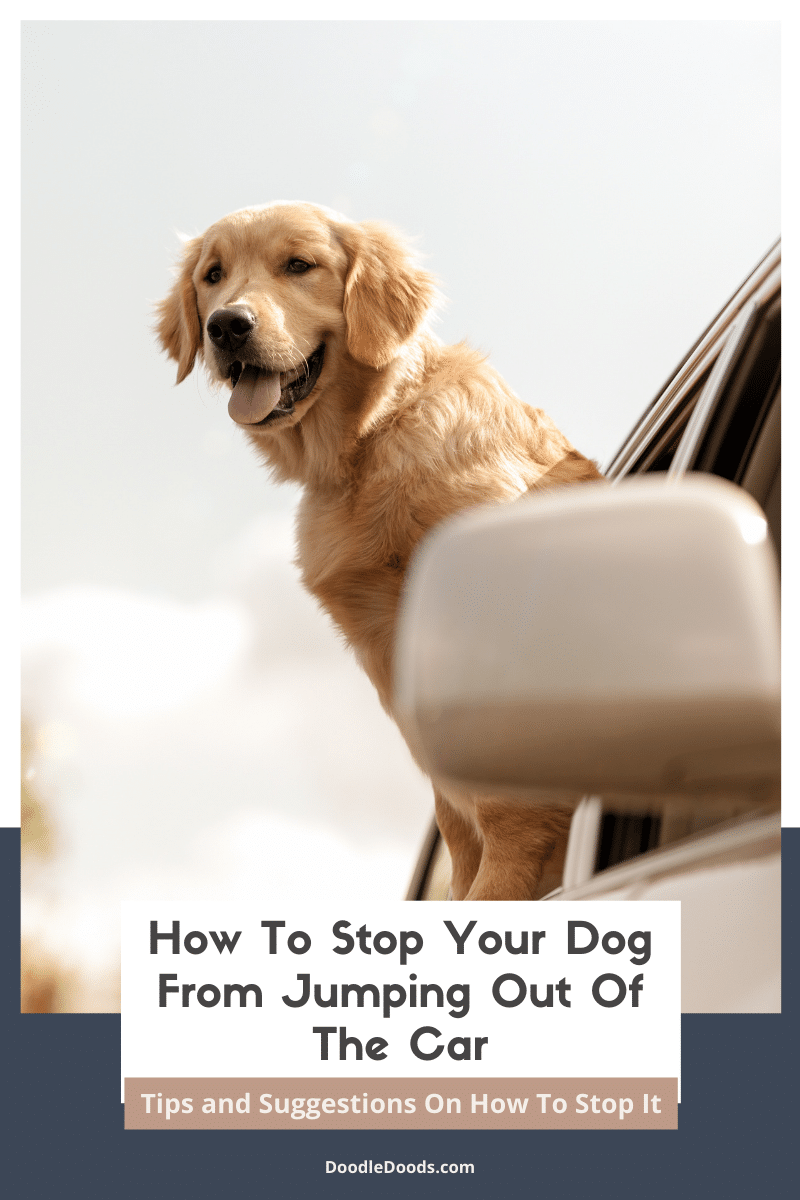
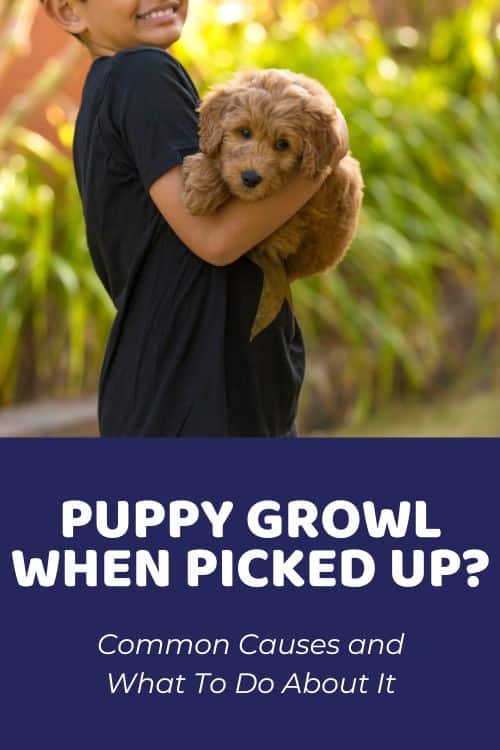

I have a problem with my labradoodle stealing other dogs balls in the park, and refusing to give them up. We’ve tried exchanges with another ball, but the stolen one is way better to him. He thinks it’s a game and runs away when we try to take it. It’s embarrassing! Help
December 1, 2023 at 10:12 amHe thinks it’s a game because everyone chases him and gives him attention when he does it. Maybe try ignoring him completely next time it happens and see how he acts?
December 6, 2023 at 10:56 am